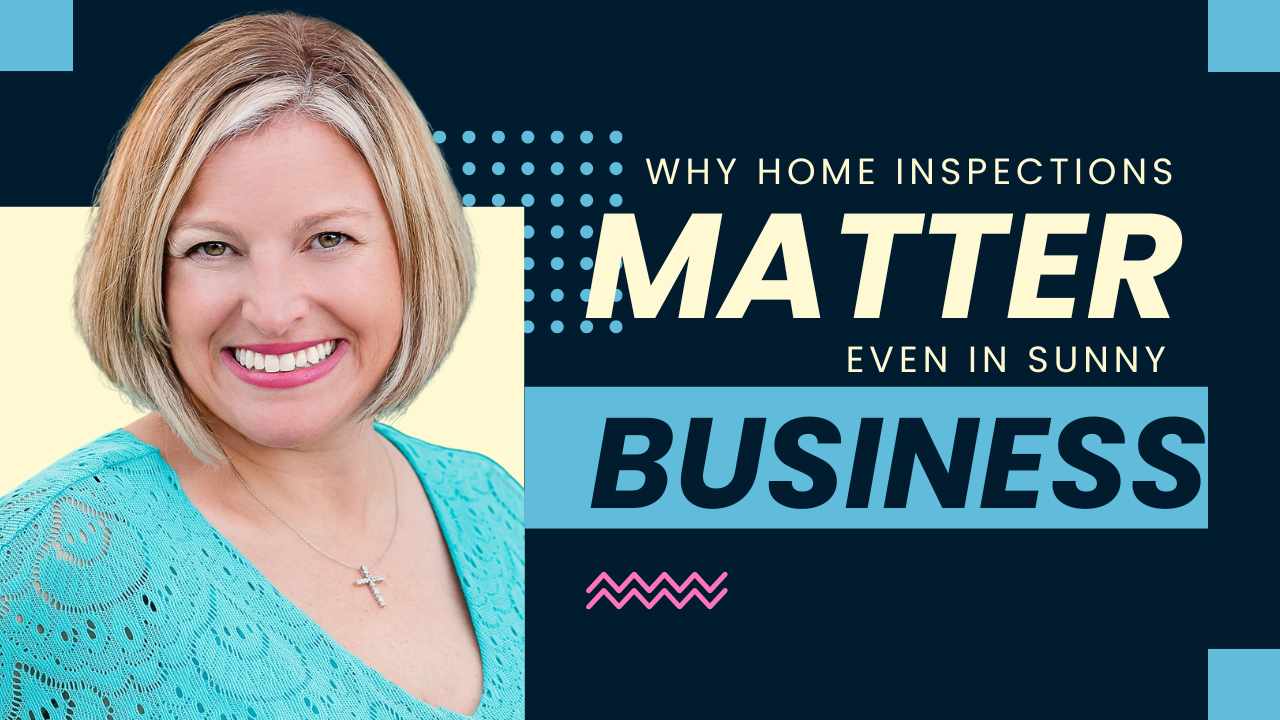Categories
Real EstatePublished November 12, 2025
Why Home Inspections Matter—Even in Sunny Florida

🏡 Buying a Home in Florida? Here's Why You Shouldn’t Skip the Inspection
Hi, I’m Karen Merola with SWFLifestyles, and I work with homebuyers across Southwest Florida—from first-time buyers to savvy investors. One topic that comes up often is whether a home inspection is “really necessary,” especially for new construction homes. The short answer? Absolutely.
Florida’s housing market has its own set of environmental pressures and construction trends that make professional inspections not just smart—but essential.
🌧️ Florida’s Unique Environment Brings Hidden Risks
Florida’s climate is warm and beautiful, but it's also a breeding ground for moisture-related damage and storm-related wear. Home inspections in our state go beyond just checking whether a door closes properly or if the outlets work.
Here’s what a Florida inspection often uncovers:
1. Moisture Intrusion & Mold Risks
Our high humidity, frequent rain, and tropical storms mean homes—both old and new—are susceptible to moisture damage. An inspector will:
-
Use moisture meters and infrared cameras to detect hidden dampness behind walls, ceilings, or under flooring
-
Check for roof leaks, faulty caulking, and improperly sealed windows
-
Assess ventilation in attics and crawl spaces, which, if inadequate, can trap moisture and accelerate mold growth
Even in homes that appear pristine, it’s common for inspectors to uncover early-stage mold, mildew, or water intrusion.
2. Termites & Wood-Destroying Organisms (WDO)
Florida’s subtropical climate makes it a hotspot for termites, particularly Formosan and subterranean termites, which can cause major structural damage. A thorough WDO (Wood-Destroying Organism) inspection:
-
Looks for active infestations, prior damage, or signs of previous treatment
-
Assesses wood framing, floor joists, and exterior walls for compromise
-
Is required by many lenders, especially VA and FHA loans
Even block construction homes can have wooden roof trusses and internal framing at risk.
3. Hurricane-Readiness & Wind Mitigation
Florida building codes are designed to protect homes from high winds, especially in coastal regions like Bonita Springs and surrounding SWFL. A home inspection will evaluate:
-
Roof-to-wall connections (clips, straps, or nails)
-
Shutter systems, impact-resistant glass, and garage door bracing
-
Age and condition of the roof and attic ventilation
-
Whether the home qualifies for a Wind Mitigation Inspection—which can reduce insurance premiums significantly
Even homes built after Florida’s 2002 building code overhaul may not have all the recommended wind mitigation features.
4. Builder Oversights in New Construction
Many buyers assume new construction = perfect condition. But builders are human, subcontractors work fast, and mistakes happen. Inspections on new homes often uncover:
-
Unsealed plumbing penetrations
-
Incorrectly wired outlets or breaker panels
-
HVAC systems with blocked ducts or condensation issues
-
Improper grading around the home, which can lead to flooding
Pro tip: Consider two inspections on new builds:
-
Pre-Drywall (Phase) Inspection to catch issues before walls are sealed
-
Final Inspection before closing, to ensure everything is up to code and working properly
5. Unpermitted Work or Code Violations
In resale homes, inspectors often find renovations or additions that were:
-
Done without permits
-
Not built to code
-
Poorly executed or unsafe (e.g., DIY electrical work, improper deck construction)
Your inspector won’t check permit history—but their findings can prompt further investigation through the municipality or your agent.
6. Plumbing, Electrical & HVAC Systems
Florida homes—especially those built in the 70s to 90s—might still have:
-
Polybutylene plumbing, prone to leaks and failure
-
Aluminum wiring, a fire risk without proper upgrades
-
Aging A/C units, which are critical in Florida’s climate and often overworked
Even in newer homes, inspections sometimes reveal leaky water heaters, undersized HVAC systems, or code violations due to rushed installations.
🏠 What Happens After the Inspection?
Once the inspection is complete, buyers receive a full inspection report—usually 40+ pages long with photos, notes, and recommendations.
You can use the findings to:
-
Negotiate repairs or credits with the seller
-
Budget for future maintenance
-
Walk away from a deal if major issues are uncovered (within your inspection period)
🔑 Bottom Line: Don't Buy Without Knowing What You're Getting Into
A home is likely your biggest investment—and in Florida, where environmental and construction factors create extra complexity, skipping an inspection is a risky gamble.
Whether you're buying a resale or brand-new construction, I strongly recommend working with a licensed, Florida-based home inspector who understands the unique challenges of our market.
If you’re starting your home search in Bonita Springs or anywhere in Southwest Florida, I’m here to guide you through each step, inspection included.
📞 Let’s make sure your dream home is a smart investment, too.
— Karen Merola | SWFLifestyles





